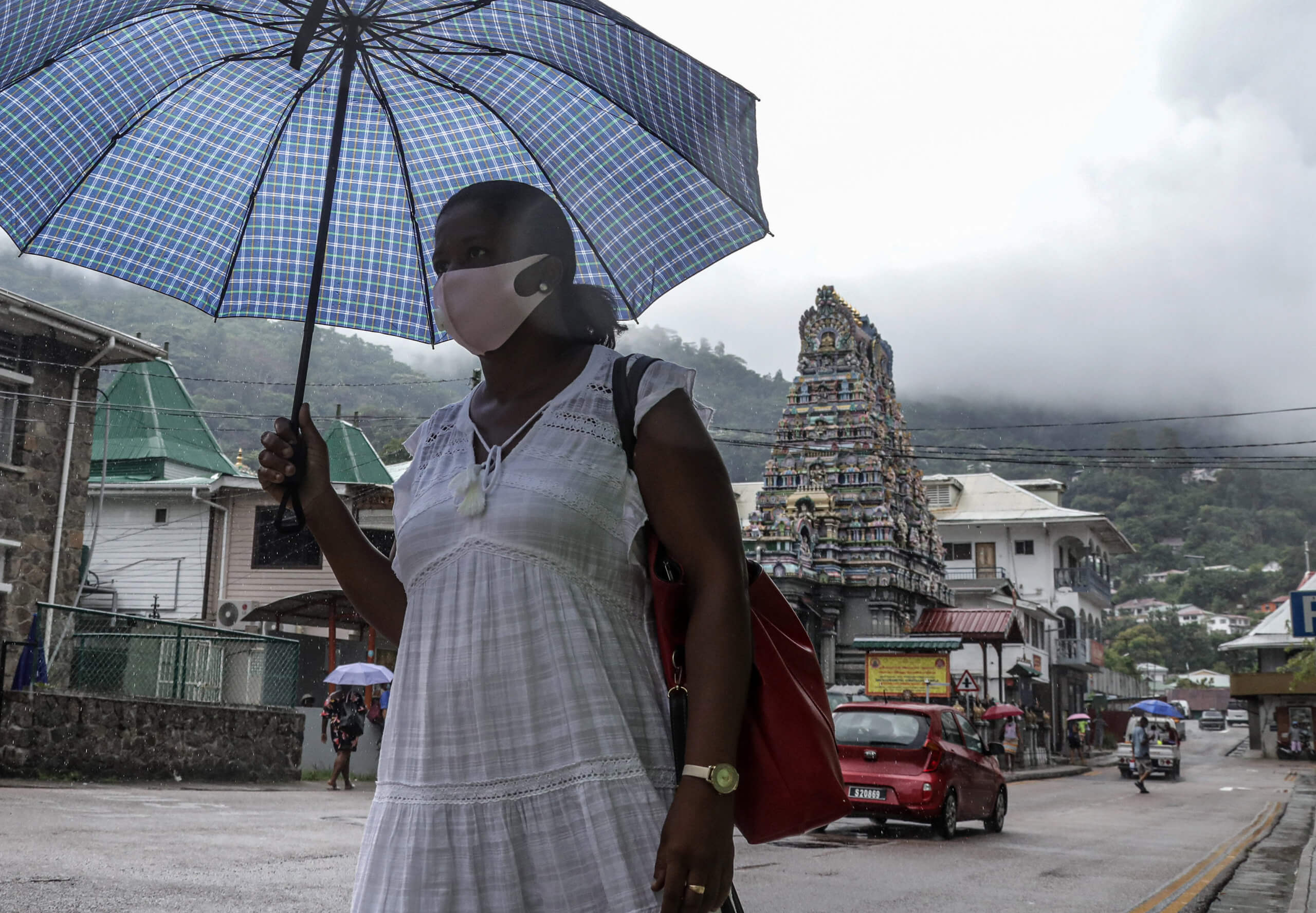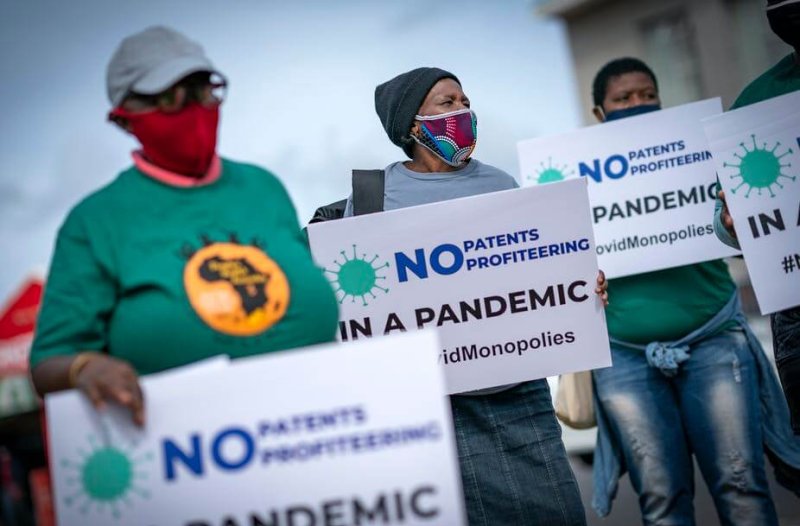The United States is entering a post-pandemic era. This is happening primarily because of the one aspect of this pandemic that differentiates it from all previous ones in history—the triumph of science. Within a year of covid-19’s outbreak, the world saw the emergence of several high-quality vaccines. This is truly breathtaking. A decade ago, the scientific consensus was that it took 10 to 15 years—and a lot of luck—to produce a vaccine for a new disease.
ITIF has noted this earlier, and the data show Zakaria is correct. Yet on May 5, U.S. Trade Representative Katherine Tai announced: “The administration believes strongly in intellectual property protections, but in service of ending this pandemic, supports the waiver of those protections for COVID-19 vaccines.”
These two statements are in conflict.
At this moment, May 2021, countries outside the United States and Europe are seeing COVID-19 cases surge, the number of afflicted mounting as the global death toll climbs well beyond 3 million. Countries like India, with only 2 percent of the population vaccinated, are staggering, but even countries with high vaccination rates, like the Seychelles, are re-imposing controls as cases increase to high levels.

The horrific states of affairs in Brazil, India, and until recently the United States and United Kingdom, are clearly the consequence of feckless and incompetent governments ignoring science. And no decent human could possibly object to extraordinary measures to alleviate the suffering we are witnessing in these places. But if one undertakes to solve a problem, what one does to solve the problem should solve the problem. Waiving COVID-19 vaccine patents doesn’t solve the problem. It may make the problem worse, and it may create altogether new problems in the process.
One will winnow in vain through the avalanche of media coverage and punditry attending the Biden administration’s announcement that it will support waiving the COVID vaccine patents for any affirmation that the maneuver will, in fact, increase the vaccine supply in time to address the burgeoning numbers of people suffering from the disease.
It is possible to marshal a persuasive case for the need to address abuses of the patent system by large multinationals, and watchdogs on the lookout for such misbehavior have not been silent here. But patent owners have not filed lawsuits or carried complaints to the World Trade Organization in Geneva about their COVID-19 vaccine intellectual property (IP) being infringed.
One of the clearest voices in the media clamor about waiving the COVID vaccine patents is that of Krishna Udayakumar of the Duke University Global Health Innovation Center. Quoted in The Washington Post, he said, “At the end of the day, the patents on their own are not going to be adequate. It’s still not clear to me how you force someone to take the knowledge in their head and share it involuntarily.” That wisdom is corroborated by Moderna CEO Stéphane Bancel, who said a possible patent waiver “doesn’t change anything for Moderna… I didn’t lose a minute of sleep.”
ITIF has previously noted that IP has in no case impeded access to the newly developed COVID vaccines, and in fact “the challenge initially was the very lack of intellectual property.” Drilling down to the details, Stephen Ezell showed the proposal by India and South Africa to suspend all trade-related IP rights (TRIPS) related to COVID vaccines is simply a stalking horse to undermine the global IP regime. The biotechnology industry noted its opposition as well, pointing out that “the scientific and regulatory barriers required before one can safely and efficiently produce these advanced technologies are simply too high to be accomplished by anything other than cooperative, collaborative partnerships” and that a “TRIPS waiver would be a divisive and ineffective detour from that critical work.”
All this becomes even more painfully clear as expert after expert has pointed out the main bottleneck limiting access to the vaccines stems from shortages in various components, each of which can be a rate-limiting bottleneck independent of the others. The situation is made worse by the fact that the most effective and most rapidly adaptable mRNA vaccines (to address emergent variants) are made with brand new technologies. People with the experience needed to manufacture them are few and far between even if all the supply line component bottlenecks could be overcome easily, which is not the case. These are at least some of the reasons why Germany quickly and openly opposed the Biden administration proposal, noting, “The protection of intellectual property is a source of innovation and must remain so in the future.”
It has been projected that facilities for manufacturing the new mRNA vaccines are two to three orders of magnitude smaller than conventional vaccine production processes, which suggests they can be built in less than half the time with a small fraction of the upfront capital costs compared to conventional vaccine production processes. Moreover, a facility with a five-liter bioreactor working volume can be sufficient to produce an estimated 1 billion vaccine doses per year for less than $1 per dose.
In view of the enormous burdens and suffering being caused by SARS-CoV-2 around the world, waiving patents is politically popular in some quarters. And in a world where one can travel from any one place on the planet to any other in a matter of days, if not hours, it is clear that none of us are safe while others remain vulnerable.
As Cory Doctorow has put it: “Even if you don’t care about poor people, brown people, and the Global South being devastated by the virus, you should still want to see everyone vaccinated, as soon as possible, to save the lives of everyone you love (and to save your own ass).” But even Doctorow admits that waiving patents would leave unscathed the challenges “of clinical trials, material pipelines, or distribution.”
So, inasmuch as patents are not impeding anybody’s access to the vaccines—and indeed offer considerable help encouraging the development of means to vanquish other plagues—those who really want to solve the problem should abandon ill-advised proposals like patent waivers and focus instead on cooperative solutions to overcoming supply-chain constraints. The sooner that happens, the sooner we can all breathe freely again.
Val Giddings is a senior fellow at the Information Technology and Innovation Foundation (ITIF). Giddings received his Ph.D. in genetics and evolutionary biology from the University of Hawaii in 1980. Val can be found on Twitter @prometheusgreen
This article was originally published at the Information Technology & Innovation Foundation and has been republished here with permission. Follow ITIF on Twitter @ITIFdc































